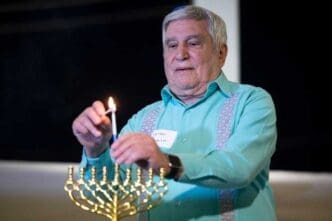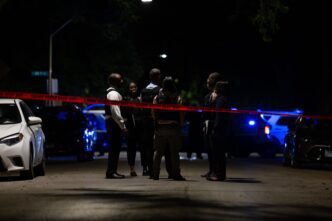Hanukkah, known as the “festival of lights,” is a significant Jewish holiday that marks the historic rededication of the Temple in Jerusalem after its liberation in the 2nd century BC. This celebration extends for eight nights, where families and communities engage in the lighting of the menorah, a practice rich with cultural and religious symbolism.
The origins of Hanukkah are steeped in history, tracing back to when a small band of Jewish fighters regained control of the Temple in Jerusalem. Despite the limited supply, they managed to keep the menorah lit for eight days with a small amount of ritually pure oil, an event commemorated annually through the lighting of candles.
Each evening of Hanukkah, one additional candle is lit in the menorah, symbolizing the miraculous endurance of the oil. This act is accompanied by the recitation or chanting of blessings, a practice that unites Jewish families worldwide in a shared tradition.
Hanukkah in 2024 begins on December 25, coinciding with Christmas. The timing of Hanukkah is determined by the Jewish lunar calendar, aligning it occasionally with varying dates on the Gregorian calendar. This year marks a unique occurrence, being only the fifth time since 1900 that Hanukkah starts on Christmas Day.
The observance of Hanukkah varies slightly among Jewish communities, from Reform to Orthodox, yet the core themes of bringing light into darkness and the transformative power of small efforts remain consistent. Most traditions begin with lighting one candle and continue in succession, embodying unity and faith.
The menorah used during Hanukkah features eight branches and an additional holder for the “shamash”—a helper candle used to light the others. Traditionally, menorahs are placed in visible locations like doorways or windowsills, illustrating the spread of light and hope.
Public menorah lightings have gained prominence, taking place in various locations worldwide, including public landmarks and city streets. This has helped foster a sense of community and public awareness about this important cultural holiday.
In addition to the menorah lightings, Hanukkah celebrations often involve acts of charity and social work, reflecting the Jewish commitment to improving the world. These philanthropic actions enhance the holiday’s spirit of generosity and goodwill.
Hanukkah serves as a vibrant reminder of Jewish perseverance and the enduring power of faith and unity. As people light the menorah each year, they not only celebrate a historical victory but also embrace the values of hope and community that continue to shine through the darkness.
Source: News4jax








